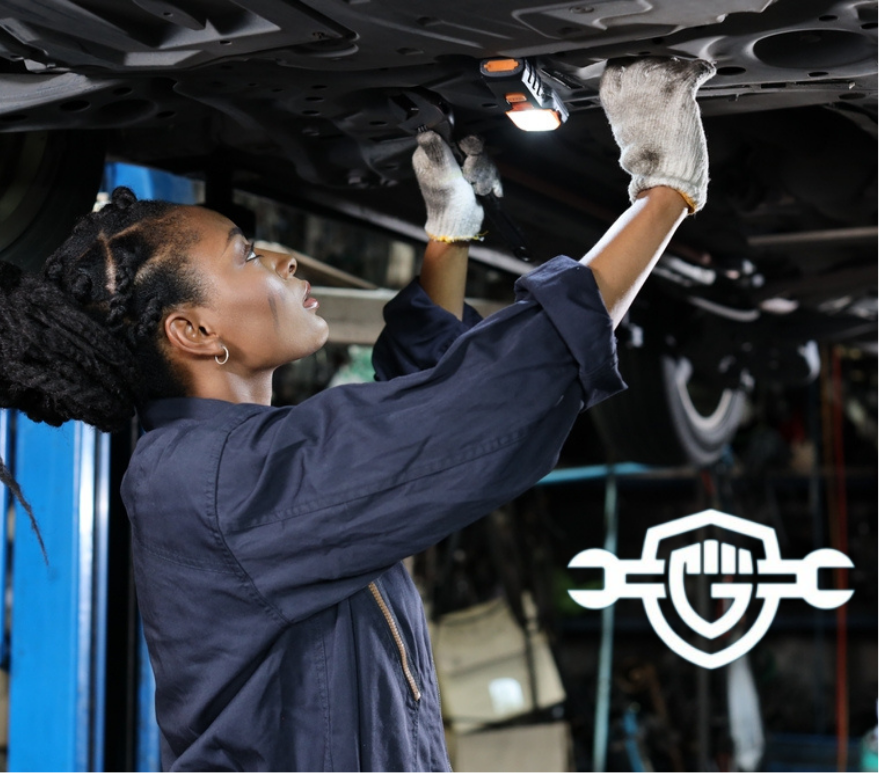Spare Tires: Compact, Full-Size, or None?
Published on
November 12, 2025
.png)
Flat tires happen, and what you’ve got in the trunk can make a big difference. Some vehicles come with a full-size spare, others include a small “donut,” and more and more leave the factory without any spare at all. Each option has trade-offs, especially when you're stuck on the side of the road or miles from the nearest shop. Your backup plan matters, since a spare tire, sealant kit, or roadside service can each make a big difference when a flat happens in an unexpected place.
Before that happens, it's also a good idea to check tire tread depth regularly. Worn tires are more likely to fail, especially in bad weather or on long drives.
What’s the Difference Between Compact and Full-Size Spare Tires?
Compact spares, or “donuts,” are space-savers meant to get you to a repair shop. Full-size spares match your regular tires and let you keep driving normally. The right choice often depends on your vehicle and how much trunk space you’re willing to give up.
Donuts are popular in cars where space and fuel economy are priorities. They’re lighter, easier to lift, and keep your trunk open for cargo. But they aren’t designed for long-term use or rough conditions. Full-size spares add weight and take up more room, but you can drive on them like nothing happened. They’re better suited for trucks, SUVs, and vehicles that see a lot of highways or rural miles.
If you're running all-weather tires, it’s still important to know what kind of spare you have, since handling and grip can vary between different tire types.
- Size & Weight: Compact spares are smaller and lighter, while full-size spares are the same size as your regular tire.
- Driving Distance: Compact spares can usually handle up to 70 miles (112.65 km), while full-size spares have no real distance limit.
- Speed Limit: Compact spares shouldn’t be driven faster than 50 mph (80.47 km/h); full-size spares can be driven at normal speeds.
- Storage Space Needed: Compact spares take up minimal space, while full-size spares require more room in your trunk
If you're not sure which type you have or should have, ask your repair shop or check your owner's manual.
When Is a Compact Spare Tire (Donut) Good Enough?
Compact spares are meant for short-term use and can work just fine if you stay close to home or have quick access to a repair shop. They’re lightweight, easy to install, and don’t take up much space, which makes them a practical choice for city drivers or anyone without room for a full-size spare.
Still, they come with limits. Donuts aren’t safe for long trips or highway speeds, and they can reduce braking and traction. The smaller size affects how your car handles, especially in wet or slippery conditions. Over time, the rubber can dry out too, so a spare that’s been sitting for years may not be reliable when you finally need it.
If your current tires are worn or damaged, now’s the time to replace your tires before you find yourself relying on a compact spare more than you'd like. It’s worth checking the air pressure in the spare now and then so it’s ready when you need it.
Why Some Drivers Choose to Carry No Spare at All
Many newer vehicles leave the factory without a spare. Instead, they include a sealant kit or run-flat tires that allow limited driving after a puncture. This helps reduce weight, save space, or make room for hybrid components.
It works for some drivers, especially those who stay in well-covered areas or rely on roadside assistance. But tire damage isn’t always simple. A torn sidewall or bent wheel won’t be fixed by a sealant. In that case, you're stuck waiting for a tow.
Keep in mind how the weather affects your tires over time. Seasonal swings can weaken rubber and raise your chances of a flat. Some drivers are okay with the risk. Others would rather have a backup ready to go.
Which Type of Spare Tire Is Best for Your Vehicle?
The right tire comes down to how you drive, what you drive, and how much space you’re working with. There’s no one-size-fits-all answer, but there are clear reasons to go with each type. It’s about finding the option that fits your routine, not just what fits in the trunk.
A full-size spare makes sense if you:
- Drive long distances or in rural areas
- Tow trailers or carry heavy loads
- Want a tire that performs like the others
- Prefer not to rush to a shop after a flat
A compact spare works fine if you:
- Stay local
- Don’t want to sacrifice trunk space
- Just need a short-term backup when things go wrong
- Want something easier to lift and install on your own
Your main tires matter too. Performance tires vs touring tires can change how your car handles and wears. And whatever spare you carry, check it now and then. A spare only helps if it’s ready to go. If you’re already riding on bald tires, now is the time to take action. Your safety depends on it.
Find a GreatWater 360 Auto Care shop near you to check your spare, replace worn tires, and make sure your vehicle is ready for the road ahead.
.png)

